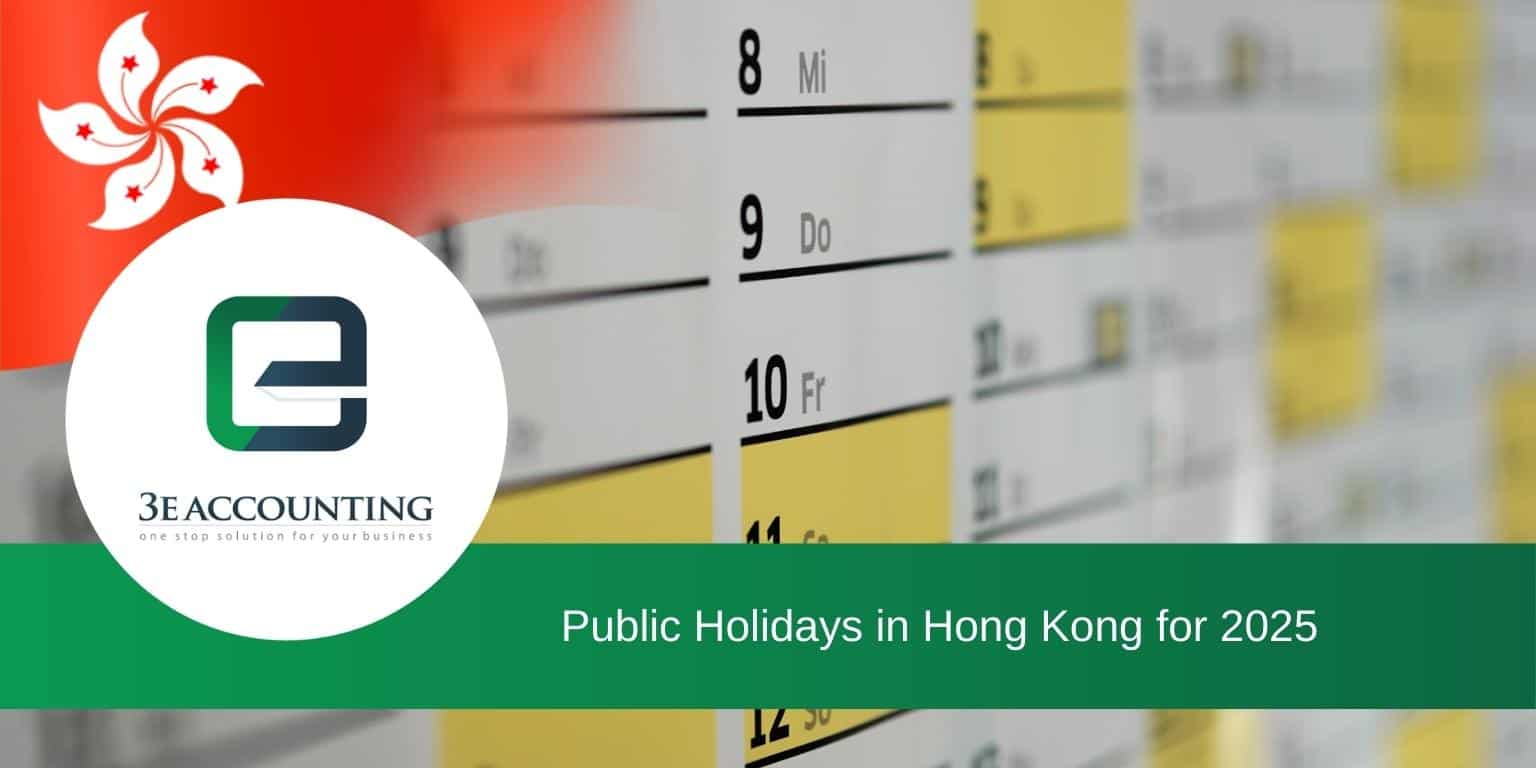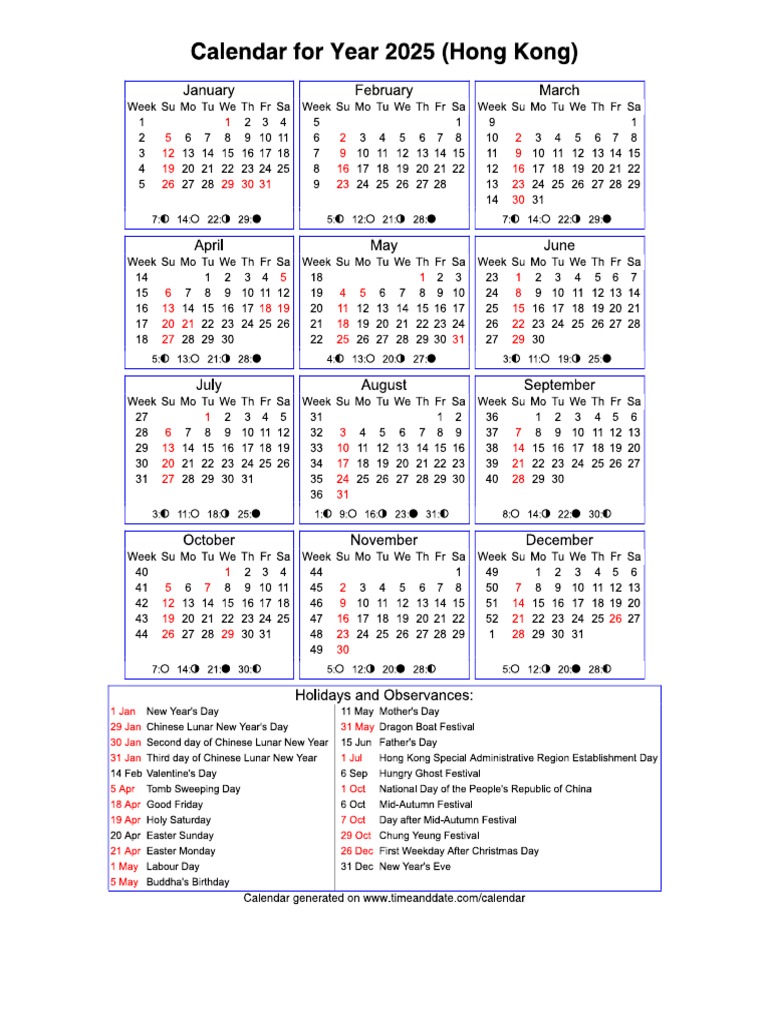2025 Calendar: Public Holidays In Hong Kong
2025 Calendar: Public Holidays in Hong Kong
Related Articles: 2025 Calendar: Public Holidays in Hong Kong
- A4 Calendar 2025 Printable Free: Stay Organized And Plan Ahead
- Virginia Tech 2025-2026 Academic Calendar
- Printable 2025 Wall Calendar: A Comprehensive Guide To Free Printables And Design Tips
- Calendar Print Out 2025 August: A Comprehensive Overview
- Calendar 2025 With Indian Holidays
Introduction
With great pleasure, we will explore the intriguing topic related to 2025 Calendar: Public Holidays in Hong Kong. Let’s weave interesting information and offer fresh perspectives to the readers.
Table of Content
Video about 2025 Calendar: Public Holidays in Hong Kong
2025 Calendar: Public Holidays in Hong Kong
Hong Kong, a vibrant metropolis and global financial hub, boasts a rich cultural heritage and a diverse calendar of public holidays. In 2025, residents and visitors alike can look forward to an array of festive occasions that celebrate both local traditions and international observances.
January
- 1 January (Thursday): New Year’s Day
The first day of the year marks the start of a new calendar and is a time for celebration and reflection. Many people attend religious services or spend time with family and friends.
- 27 January (Monday): Lunar New Year’s Day
Lunar New Year, also known as Chinese New Year, is the most important festival in the Chinese calendar. It is a time for family reunions, feasting, and traditional rituals. The holiday lasts for 15 days, with the first three days being public holidays.
February
- 17 February (Monday): Good Friday
Good Friday commemorates the crucifixion of Jesus Christ. It is a solemn day of religious observance for Christians.
March
- 10 March (Monday): Ching Ming Festival
Ching Ming Festival, also known as Tomb Sweeping Day, is a time to honor ancestors and visit their graves. Families gather to clean and decorate gravesites and offer prayers and food to the deceased.
- 31 March (Monday): Easter Monday
Easter Monday is a Christian holiday that celebrates the resurrection of Jesus Christ. It is a day of joy and celebration, and many people attend church services or spend time with family and friends.
April
- 7 April (Monday): Buddha’s Birthday
Buddha’s Birthday commemorates the birth of Siddhartha Gautama, the founder of Buddhism. It is a day of religious observance for Buddhists, who visit temples to pray and offer food and flowers to the Buddha statue.
- 21 April (Monday): Easter
Easter Sunday is the most important Christian holiday, celebrating the resurrection of Jesus Christ. It is a day of joy and celebration, and many people attend church services or spend time with family and friends.
May
- 1 May (Thursday): Labour Day
Labour Day is a day to celebrate the contributions of workers and to advocate for workers’ rights. It is a public holiday in many countries around the world.
- 12 May (Monday): Buddha’s Enlightenment Day
Buddha’s Enlightenment Day commemorates the day when Siddhartha Gautama attained enlightenment and became the Buddha. It is a day of religious observance for Buddhists, who visit temples to pray and meditate.
- 29 May (Thursday): Dragon Boat Festival
Dragon Boat Festival, also known as Duanwu Festival, is a traditional Chinese festival that commemorates the ancient poet Qu Yuan. It is a day of dragon boat races, traditional food, and cultural performances.
June
- 22 June (Sunday): Mid-Autumn Festival
Mid-Autumn Festival, also known as Moon Festival, is the second most important festival in the Chinese calendar. It is a time for family reunions, feasting, and moon gazing.
- 23 June (Monday): Mid-Autumn Festival Holiday
The Mid-Autumn Festival Holiday is a public holiday that follows Mid-Autumn Festival. It is a day for people to relax and enjoy the festivities.
July
- 1 July (Tuesday): Hong Kong Special Administrative Region Establishment Day
Hong Kong Special Administrative Region Establishment Day commemorates the anniversary of the establishment of the Hong Kong Special Administrative Region of the People’s Republic of China. It is a day of celebration and national pride.
August
- 17 August (Sunday): Liberation Day
Liberation Day commemorates the end of Japanese occupation in Hong Kong during World War II. It is a day of remembrance and celebration of freedom.
September
- 22 September (Monday): Mid-Autumn Festival Holiday
The Mid-Autumn Festival Holiday is a public holiday that follows Mid-Autumn Festival. It is a day for people to relax and enjoy the festivities.
October
- 1 October (Wednesday): National Day
National Day commemorates the founding of the People’s Republic of China. It is a day of national pride and celebration.
- 2 October (Thursday): National Day Holiday
The National Day Holiday is a public holiday that follows National Day. It is a day for people to relax and enjoy the festivities.
November
- 11 November (Tuesday): Armistice Day
Armistice Day commemorates the end of World War I. It is a day of remembrance and peace.
- 27 November (Thursday): Thanksgiving Day
Thanksgiving Day is a traditional American holiday that celebrates gratitude and family. It is not a public holiday in Hong Kong, but some people may observe it privately.
December
- 25 December (Thursday): Christmas Day
Christmas Day is a Christian holiday that celebrates the birth of Jesus Christ. It is a day of joy and celebration, and many people attend church services or spend time with family and friends.
- 26 December (Friday): Christmas Day Holiday
The Christmas Day Holiday is a public holiday that follows Christmas Day. It is a day for people to relax and enjoy the festivities.
Additional Notes:
- Public holidays in Hong Kong are governed by the Employment Ordinance.
- If a public holiday falls on a Sunday, the following Monday is also a public holiday.
- Some public holidays may be subject to change, so it is always advisable to check the official government calendar for the most up-to-date information.






Closure
Thus, we hope this article has provided valuable insights into 2025 Calendar: Public Holidays in Hong Kong. We appreciate your attention to our article. See you in our next article!
